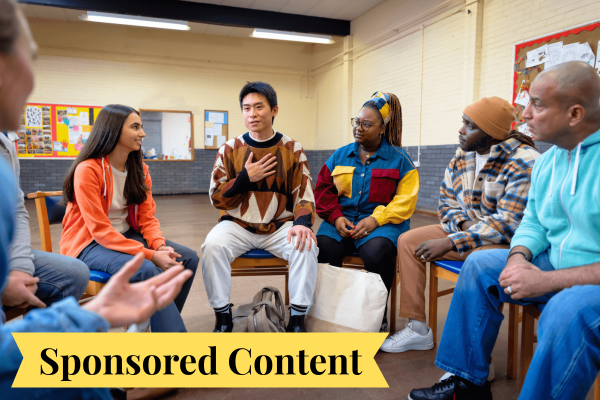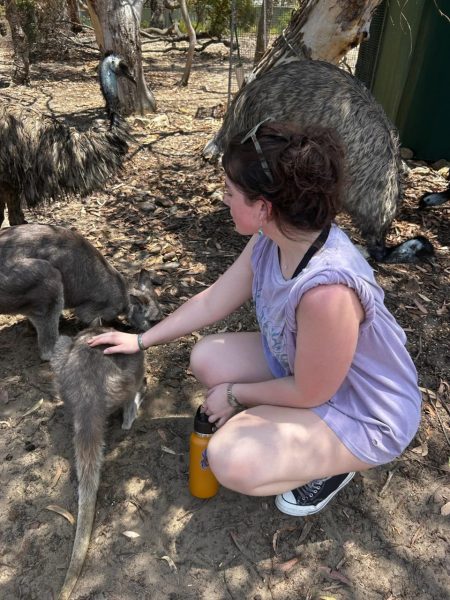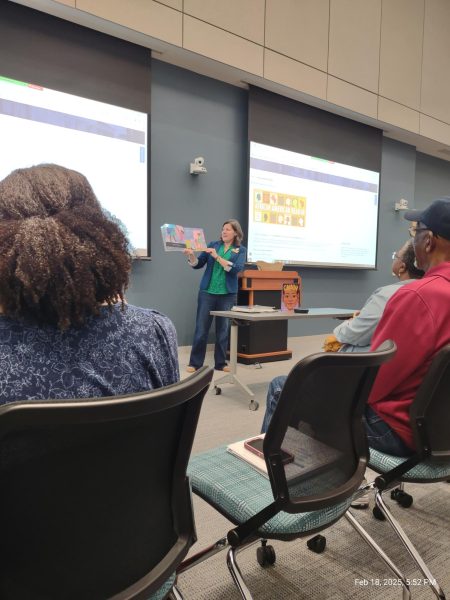Chancellor, faculty address students feeling ‘uncomfortable’ at UNCW
Issues revolving race, racial identity and equality are not new discussions for many Americans. However, many college campuses, especially in the UNC system, are now confronting these issues in response to student unrest and dissatisfaction.
As UNC Wilmington students prepared to return to campus for the fall semester, new reports of unrest on campuses across the country set the tone for what the university would soon be talking about. In Durham, students and civilians personally tore down the statue of a confederate soldier using a rope on August 14. And prior to that, white nationalists walked on Charlottesville, Virginia, where the protest and counter protests turned violent, leaving one anti-fascist protester dead.
Wilmington has had its own history with these exact issues. Whether it was with the Wilmington insurrection of 1898 that left many African American residents without their livelihood or the Student Government Association forum on what happened in Charlottesville, this area has been having its own discussion.
Dr. Glen Harris of the History department moderated the SGA forum that took place in August 2017. Dr. Harris expressed that these are not new issues or discussions for him.
“Being a young black man growing up and being a black professor, those issues that would take place [like in Charlottesville] are not foreign to me,” Dr. Glen said. “These kinds of issues, these kinds of topics that revolve around race, antisemitism, issues of prejudice and discrimination have not been foreign to me growing up….any given day I am confronted with these topics.”
Dr. Glen grew up in Fayetteville, N.C., did his undergraduate work at North Carolina Central University in Durham and then earned his doctorate at Florida State University.
“[We are a] campus that has a very good academic reputation, high intellectual reputation; there are a lot of academically and intellectually talented students on this campus,” Dr. Glen said. Since he considers UNCW a gifted campus, Dr. Glen believes it is not a matter of awareness or of these conversations being absent from our campus. Rather, these conversations are happening in private.
“At historically black colleges, these topics are front-and-center,” Dr. Glen said. “At HBCUs [Historically Black Colleges and Universities], those conversations take place in private settings, but without question, they take place in a public setting. And it is the nature of an HBCU that those conversations become public; one way or another those conversations become public.”
For Dr. Glen, he finds that people are not comfortable talking in public about issues of racism. He said that he has matured more so into becoming a public voice for this particular issue, whereas others may not be at that point yet, which is why “I don’t chastise students for not talking.”
It takes a level of maturity, Dr. Glen said, to have meaningful conversations about this issue. It also takes a sense of awareness for your own involvement in the issue.
With a campus of over 15,000 students — undergraduate and graduate as well as traditional and nontraditional — it is hard to believe that no one on this campus does not ascribe to the ideology that those at Charlottesville proclaim. And, according to Dr. Glen, it would be naive.
“[The SGA address] began as a conversation of entertainment and what I said to [the students] was it’s going to take about 20 to 30 minutes before we get to the essence of what is going on,” Dr. Glen said. “So, I’ll take you to one of the end conversations we had, where there were two students who spoke about being uncomfortable on campus and that is an amazingly mind-blowing thing to hear: students that attend this university are uncomfortable.”
Though it is important that we have these conversations, Dr. Glen said, it is imperative that we notice our complicity to allow our friends to say slightly or overtly racist comments.
“I think it is incumbent of faculty to take the lead on these types of things, open discussions,” Dr. Glen said. “That [SGA forum] was necessary and I could not have been more pleased with being a part of that.”
“You have to be active” is what Dr. Glen said he tells students he comes across. “I have to do so also; I can’t ask any more of them then what I am willing to do myself.” And by asking students to be more active, he is also asking that they pay attention to what their friends say and to not be complicit.
Chancellor Jose “Zito” Sartarelli was also at the forum and felt that students must also remember the importance of civility in regards to freedom of speech and the sharing of opposing opinions.
“I have spoken to a lot of students, I have spoken in small meetings and also [to] large groups of people” Chancellor Sartarelli said about students feeling uncomfortable on campus. “I think the vast majority are not that concerned about this… but there is [a group]. A small group of students that are concerned, maybe perhaps anxious.”
The chancellor said that we should address these students’ concerns. “We should be talking to them, we should be counseling them, if necessary. We should be making everything available to them so that they feel comfortable on campus.”
Chancellor Sartarelli said that we are a safe campus, where the student body and the universities constituents can discuss differences of opinions with respect and without destruction or violence. And as long as we continue to do that, “we will prosper.”
Also taking the time to address some of the diversity issues on campus, Chancellor Sartarelli spoke briefly about the work his staff and administration were do to make for a more equitable campus. The chancellor said that UNCW would not be implementing affirmative action numbers, however, they are discussing ways in which the hiring process for new faculty can be made more equitable for potential faculty who are also persons of color.
“There is no one more concerned with making sure this place is a diverse place than I am,” Chancellor Sartarelli said. “When you look at me, I am a diverse person myself. I believe in [diversity], I believe it is better for all of us. We need to have more representation from minority groups in our faculty. We have a program, a part of these ten objectives we are developing, that aims at how we make sure we start hiring more underrepresented minority professors.”
One of the things the chancellor is implementing is that he and his staff are requiring every search committee be more diverse, whether that means that they have to borrow faculty from other departments or not. He has emphasized with all of the deans that each slate of candidates for a position must be diverse. “Let’s make an effort to have diverse slates.”
Chancellor Sartarelli also said he wants to see the Upperman center and Centro Hispano become places in which all students can go and learn from one another.











